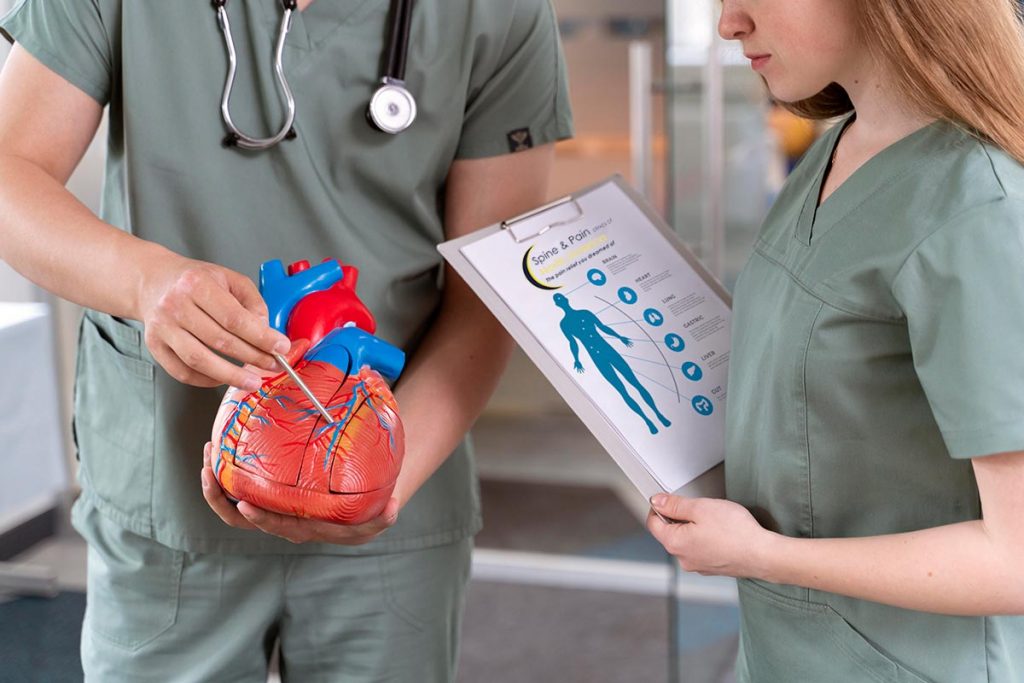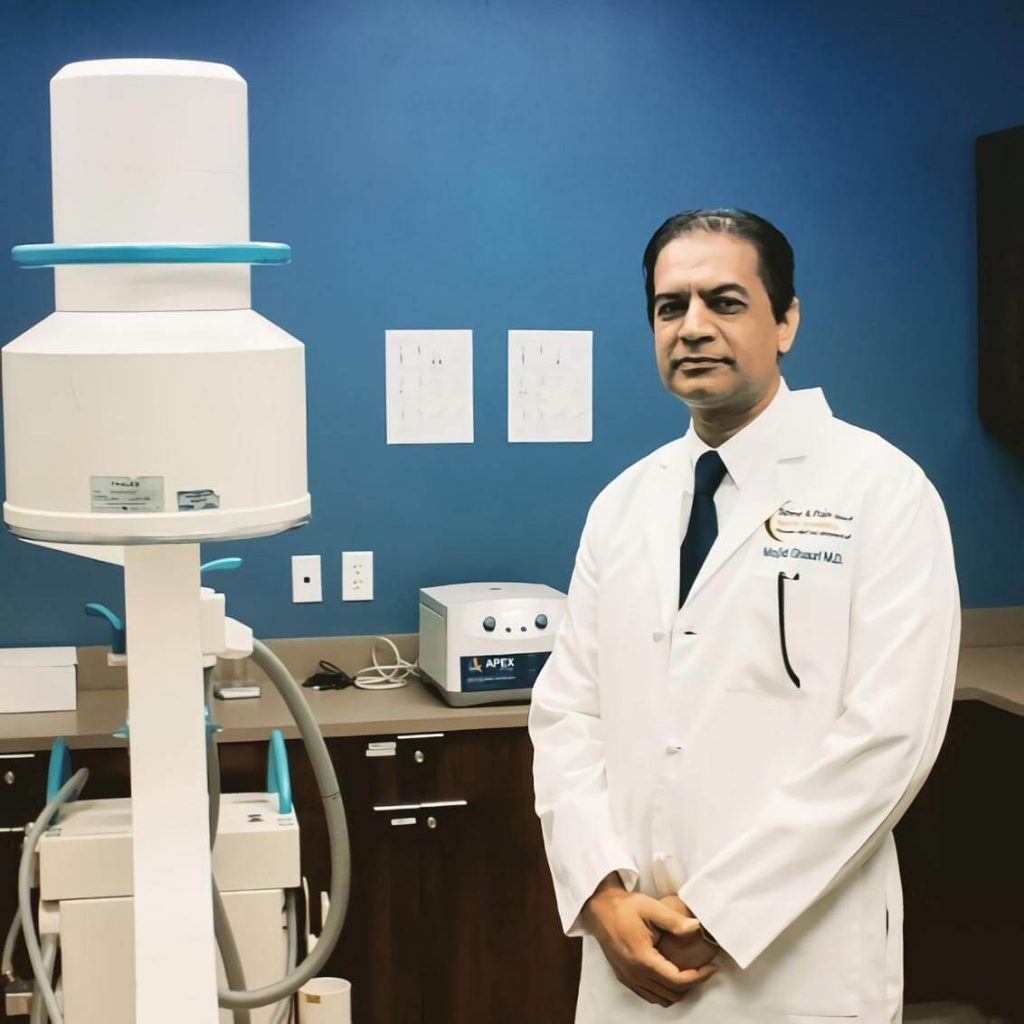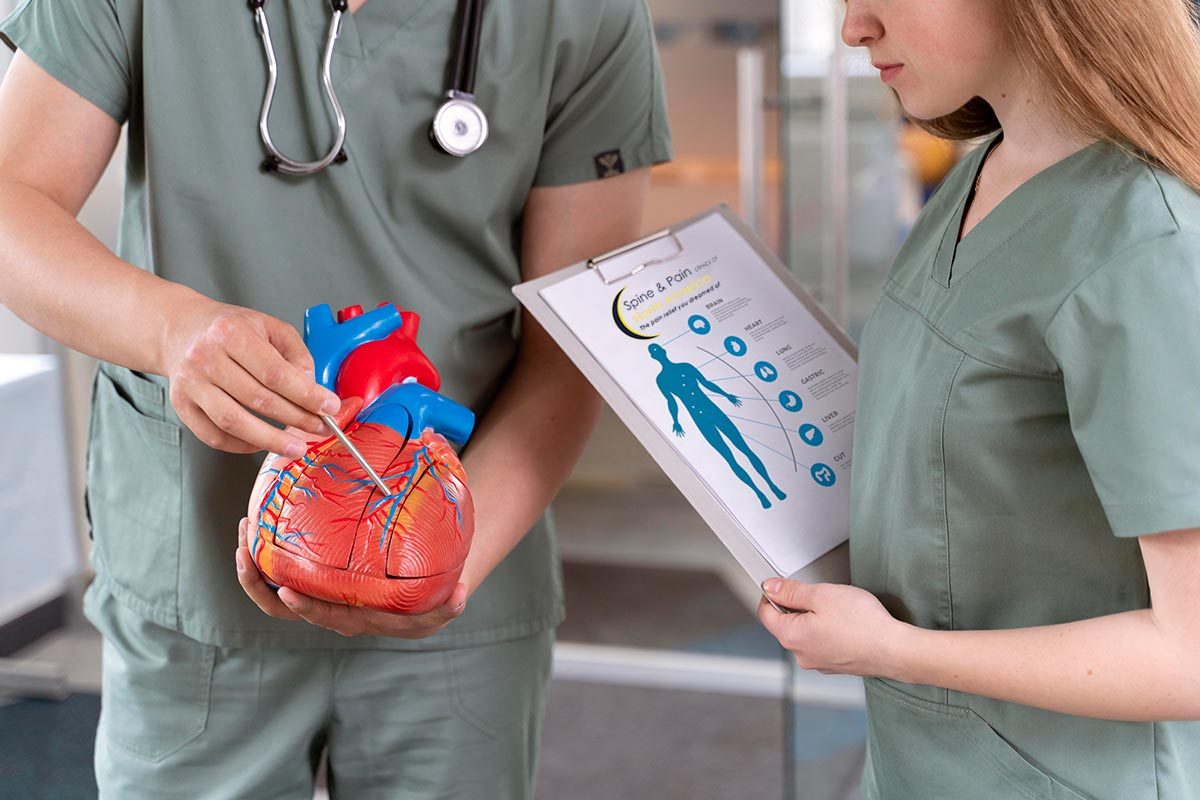
Table of Contents
- Relationship of Chronic Pain to Heart Health
- Health Conditions Associated with Pain
- Pain is Still Not Fully Understood
- Address Chronic Pain to Protect Your Heart
Can chronic pain cause heart problems? Through decades of ongoing research, medical researchers have learned that pain, especially chronic pain, is strongly connected to the cardiovascular system. They have discovered chronic pain is associated with cardiovascular disease, high blood pressure, elevated heart rate and other heart problems. Understanding how pain and heart health are connected is vital to managing pain so it does not lead to serious heart disease.
Relationship of Chronic Pain to Heart Health
Pain triggers the amygdala response, a part of the brain related to pain when the neurons are excited. Pain has been associated with various heart issues because the pain response leads to a response by the HPA axis (hypothalamic-pituitary-adrenocortical). This releases adrenaline, cortisol and noradrenaline, among other hormones.An unrelenting release of the hormones due to chronic pain causes cardiovascular system damage. In fact, amygdalar activity from chronic stress, a symptom of chronic pain, has been found to have a relationship to arterial inflammation.
There is a direct relationship between chronic pain and the sympathetic nervous system (fight or flight response), meaning the system is overactivated. When activity increases, the heart rate goes up. If persistent due to chronic pain, that may lead to cardiovascular disease.
The source of pain may vary, but it is the presence of chronic pain that matters. For example, in 2020, researchers reported a link between musculoskeletal pain and cardiovascular disease.
So, the physical response to chronic pain is complex, but the relationship to heart disease is well established. Managing chronic pain is essential to heart health.
Health Conditions Associated with Pain
1. Heart Rate
Does pain increase the pulse rate? There is an established connection between pain and heart rate. Heart rate variability (HRV) can be a pain response. In fact, researchers found that several chronic pain conditions can negatively affect the quality of life due to heart rate impairment.
Pain and tachycardia are connected. Tachycardia is arrhythmia that originates within the atria. It is frequently found in people with heart disease and ischemic coronary heart disease. It is defined as a heart rate greater than 100 beats per minute.
2. Blood Pressure
Does pain affect blood pressure and heart rate? As discussed, pain and heart rate are connected. Pain also affects blood pressure. Acute pain may cause a temporary blood pressure increase. Chronic pain can impair cardiovascular and analgesia system regulation, leading to long-term elevated blood pressure.
3. Heart Attack
A heart attack may result from chronic stress and pain. The stress of pain leads to adrenalin being consistently released, raising the heart rate and blood pressure over a period of time. A heart attack may also develop due to chronic tachycardia that develops from long-term pain. A study followed 17,614 people using pain relievers for at least three months to treat chronic pain. The results found that people with chronic pain were 20% more likely to experience a heart attack.
Pain is Still Not Fully Understood
The effects of changes in adrenaline and noradrenaline on the heart are measurable due to pain. The effects include an increased heart rate, arterial inflammation and high blood pressure, all of which can lead to a heart attack or stroke. Yet, the Association of American Medical Colleges is the first to admit that the pain mechanism is still not fully understood. One of the complications is that chronic pain is a response to something, like an injury or disease, and it has psychological and emotional elements.
Address Chronic Pain to Protect Your Heart
The Centers for Disease Control and Prevention’s survey found that 20.9% of adults experience debilitating chronic pain. Chronic pain can negatively affect the heart in another way. People experiencing frequent painful episodes are more likely to reduce activity. They change their lifestyle to accommodate the pain, and a sedentary lifestyle can lead to heart disease. It is important to manage stress and to follow a doctor’s treatment plan to address pain. A treatment plan will rely on more than medications and heart procedures. A doctor will also recommend lifestyle changes, like dietary changes and an exercise program.

Sources
- https://www.ncbi.nlm.nih.gov/pmc/articles/PMC8059430/
- https://www.ncbi.nlm.nih.gov/pmc/articles/PMC7864285/
- https://www.ncbi.nlm.nih.gov/pmc/articles/PMC10049654/
- https://pubmed.ncbi.nlm.nih.gov/31591645/
- https://www.ncbi.nlm.nih.gov/pmc/articles/PMC8870705/
- https://www.ncbi.nlm.nih.gov/books/NBK542235/
- https://www.ncbi.nlm.nih.gov/pmc/articles/PMC9509303/ The analgesia system enables the body to control pain.
- https://www.health.harvard.edu/heart-health/chronic-pain-linked-to-higher-risk-of-heart-attack-and-stroke
- https://www.aamc.org/news/science-pain-what-it-and-why-it-so-hard-measure
- https://www.cdc.gov/mmwr/volumes/72/wr/pdfs/mm7215a1-H.pdf
